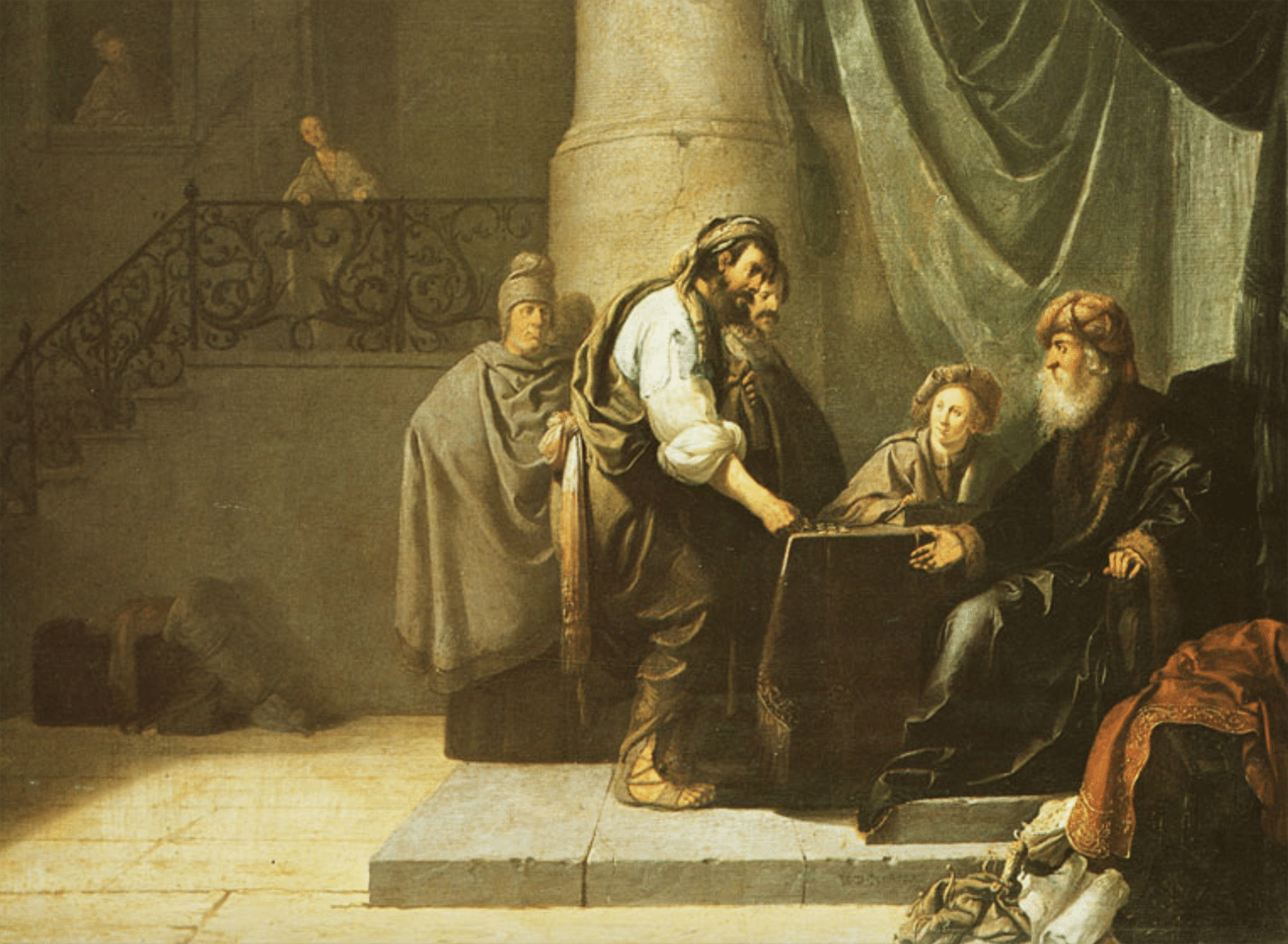This parable of the talents is subject to a variety of interpretations.
Some argue that it’s a parable about first-century Jews and Jewish Christians, the former (symbolized by the third servant in the story) burying the “talents” of Judaism, refusing to take part in the ingathering of gentiles in the advent of Christ. By this interpretation, Matthew seems to be criticizing those who failed to accept Jesus as the Christ, forfeiting thereby their part in God’s fuller saving plan. The first two servants, by contrast, didn’t hoard the treasures of Judaism, the promises and covenants; thus, they’re welcomed into the “master’s joy” (Mt 25:21-23).
| November 19, 2023 – 33rd Sunday in Ordinary Time |
|---|
|
Prv 31:10-13, 19-20, 30-31 Ps 128:1-2, 3, 4-5 1 Thes 5:1-6 Mt 25:14-30 |
Whether this interpretation is accurate is something, of course, for scholars to argue. Undoubtedly, however, for those outside Matthew’s community, the parable quickly became a story about believers’ share and participation in the spread of the kingdom of God. We know that Paul had to get onto lazy believers at Thessalonica (cf. 1 Thes 5:14). We know that some may have mistakenly thought Jesus’ return was to happen so soon that they needn’t worry about much of anything, neither work nor evangelization. It’s very likely that early in the life of this parable it was read in this way: as an exhortation for believers to continue on as what Pope Francis has long called “missionary disciples” (Evangelii Gaudium, No. 120). “Go, therefore, and make disciples of all nations,” Jesus says (Mt 28:19). The Gospel does not make idlers. That seems to be the point.
Busy in the Kingdom
But how should believers busy themselves in the work of the Kingdom? Perhaps this gives us a clue how to read the next parable Matthew offers. “I was hungry and you gave me food, I was thirsty and you gave me drink, a stranger and you welcomed me,” the Son of man says seated on his throne (Mt 25:35). As believers, how do we invest our talents well? By living the life Jesus taught us to live — lives of joy and proclamation and service. By making sure we’re Christians in deed, as well as in word.
We needn’t worry about when exactly the Lord will return. As Paul said, “You have no need for anything to be written to you” (1 Thes 5:1). That we know he will return is enough for us. If anything, we know it will be a surprise. What matters is that we realize and act as “children of the light and children of the day” and not children of darkness (1 Thes 5:4-5). And that means we continue our days as humble servants of the Lord, doing works of light even though it is at present dark. We’re to live and act as if heaven is already our reality; because, of course, in a certain sense it is.
So, somewhat strangely, we are to prepare for the second coming of Christ by not thinking about it too much. Rather, we are to prepare for his coming by tending to the loves and graces — the presence of Christ — immediately present in our lives now. In the sacraments, in the word of God, in the practice of charity, works of mercy: that’s our focus. God will take care of the rest. As my football coach dad used to tell his linemen, “Take care of the man in front of you. The game will take care of itself.” That, really, is good advice for Christians too.
Don’t worry too much about the history of the world or when Christ is coming back to right all the wrongs we see and experience. Instead, love and serve others here and now. Find the Christ who is close and hidden. Find the hungry, the thirsty, the imprisoned and lonely; find them and you will find Christ. And then when you do — or at some other mysteriously merciful point — you’ll find that your talents have increased. And you’ll know the Master’s joy.





